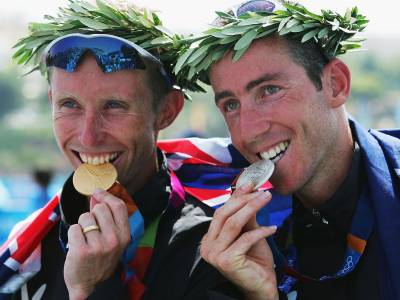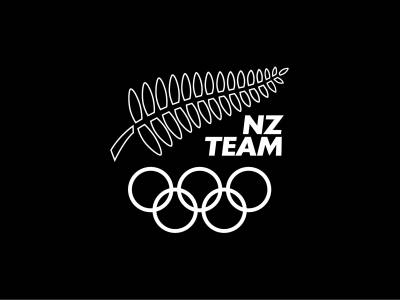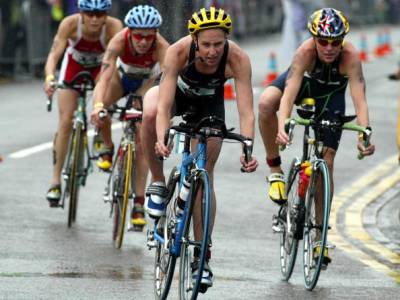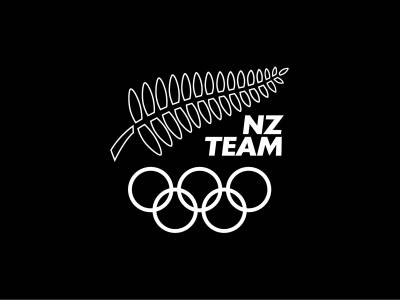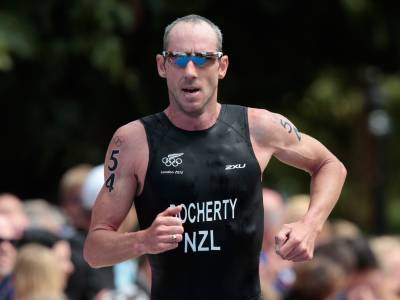No-one better understood Rudyard Kipling's two imposters, triumph and disaster, than New Zealand triathlete Hamish Carter.
The Aucklander held the world No 1 ranking when he arrived in Sydney in 2000 to contest the first Olympic triathlon. He had a shocker of a race, trailing home 26th, more than two and a half minutes behind the winner, Canadian Simon Whitfield. He realised he had made a hash of his Olympic campaign and vowed that, if given another opportunity, he would not make the same mistake again.
Two years later, at the 2002 Manchester Commonwealth Games, Carter competed impressively, finishing with a bronze medal. Still that flop at Sydney rankled.
He earned selection for the 2004 Athens Olympics, but by then he was no longer the New Zealand triathlon king. His friend Bevan Docherty had become the talk of the triathlon scene after winning the 2004 world title at Madeira. Carter was expected to compete well at Athens, but Docherty carried most New Zealand hopes.
The omens weren't promising on the swim when Carter emerged from the water 33rd and Docherty 17th. The 40km bike leg was pivotal. Carter and Docherty got on to a leading bunch of six that put more than half a minute on the field. It was a gruelling, hilly course and severely tested the riders, but Carter seemed to do it comfortably.
Into the run and the front group of six soon became three, the New Zealanders and the Swiss, Sven Riederer. Carter and Docherty handled the heat well, surging and looking strong, while Riederer's head swayed from side to side.
Finally, with one kilometre remaining, the New Zealanders opened the throttle and the Swiss could not respond. Carter and Docherty had the gold and silver to themselves. It was a spine-tingling moment. Now it was just a matter of who would win. Most money would have been on Docherty. He was younger – 27 to 33 – and his recent results were better. But Carter picked this day, after a 12-year international career, to have the race of his life.
He eked out a lead over his countryman and won in 1h 51min 07.73s. Docherty was eight seconds behind.
It was an incredible sight: two New Zealanders on the dais at an Olympics. It had happened only twice previously, at Tokyo in 1964, when Peter Snell and John Davies were first and third in the 1500m, and at Atlanta in 1996, when Blyth Tait and Sally Clark were first and second in the three-day eventing.
Carter had contemplated retirement over the previous year. He missed his family terribly – when he mentioned them at the post-race press conference at Athens, his voice faltered and he was near tears. “I'm so glad I stayed on now. It makes it all worthwhile, the whole career. I remember when I was just five years old I watched John Walker, all in black, cross the line to win the gold medal at Montreal in 1976. It was so moving. I never thought I would get the opportunity to feel like that.”
He had truly exorcised the ghosts of Sydney.
As a schoolboy at Auckland Grammar, Carter was a good rower, but he turned to triathlons when he realised he was not big enough to row at the top level. “I was in some national junior championship teams, but at senior level, I'd have been a lightweight, and the prestige events are the open ones. I looked around for another sport and the triathlon appealed.”
Running was his weakest discipline for some time and he worked hard to improve that area of his triathlon performance. Carter's first triathlon was at Whangamata in 1991, when he finished in the top 10. Within three years he was the best in New Zealand. At one point he won 18 local races in a row.
For a decade, until the arrival of Docherty, Carter ruled the New Zealand triathlon scene. He had some low moments, such as awful cycling accident in 1994 when he broke his collarbone. There were lots of highpoints, too. He won 22 professional triathlons and had 12 World Cup race victories. But for a long time it seemed he would never quite be able to land the big one.
All that changed one sunny day at Athens in 2004.
He won the Sportsman of the Year award that year and continued in the sport. He finished sixth at the 2006 Melbourne Commonwealth Games and second at the 2006 world championships, behind Briton Tim Don, who was suspended soon after for missing three out-of-competition drugs tests.
In October 2006, Hamish Carter won the Xterra World Championship in Maui, Hawaii beating a field of more experienced off-road triathletes. On March 6, 2007, he announced his retirement.
Such results emphasised what a good competitor Carter was, but with nothing left to prove, he retired shortly after. He knew he had already climbed his Everest.
Carter was awarded Officer of the New Zealand Order of Merit in the New Year Honours list of 2004-05. In 2011 he became a board member of High Performance Sport New Zealand.
Tweet Share

Hamish's Games History
-
Commonwealth Games Melbourne 2006
-
Final 1:50:35:85
-
-
Olympic Summer Games Athens 2004
-
Final 1:51:07.731
-
-
Commonwealth Games Manchester 2002
- 3
-
Olympic Summer Games Sydney 2000

